Croton- Plant Bio: Podcast Ep#37
- Owner: Holly Dz

- Jul 5, 2021
- 4 min read
Updated: Oct 10, 2021
Even though Croton are known as a difficult houseplant, their brilliant colors, full foliage and sturdy leaves make it worth it. If you're willing to give them a bit more care, love and, attention you can definitely have this as a thriving houseplant!
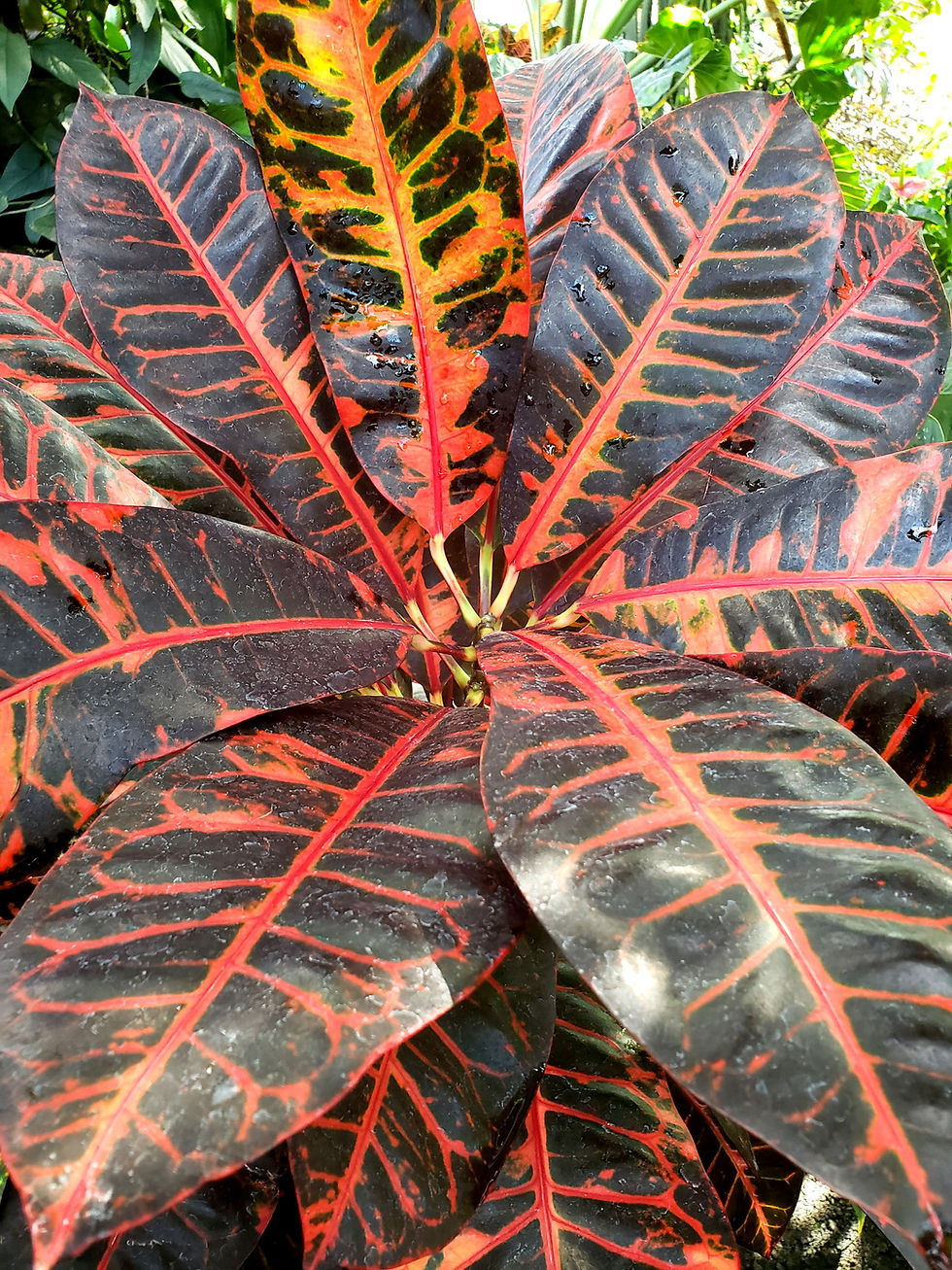
Botanical Name
Codiaeum variegatum
Common Names
Croton, Joseph's Coat
Variety Names
Petra, Mammy, Magnificent, Oak Leaf, Banana, Gold Dust, Gold Star, Picasso's Paintbrush, Zanzibar, Dreadlocks
Sun Requirements:
Bright, indirect sunlight is great but these really thrive in bright, direct sunlight if you are able to provide it. In order to hold their bright, vibrant color they need to be at least in bright, indirect light.
Water Requirement
Whenever your Croton almost dries out, you can water it. The leaves will droop a bit if they are too dry but once you understand their watering pattern, I would try not to let the leaves droop.
If you are unsure on how to read the amount of moisture your plant has, you can find a moisture meter reader on Amazon for pretty cheap!
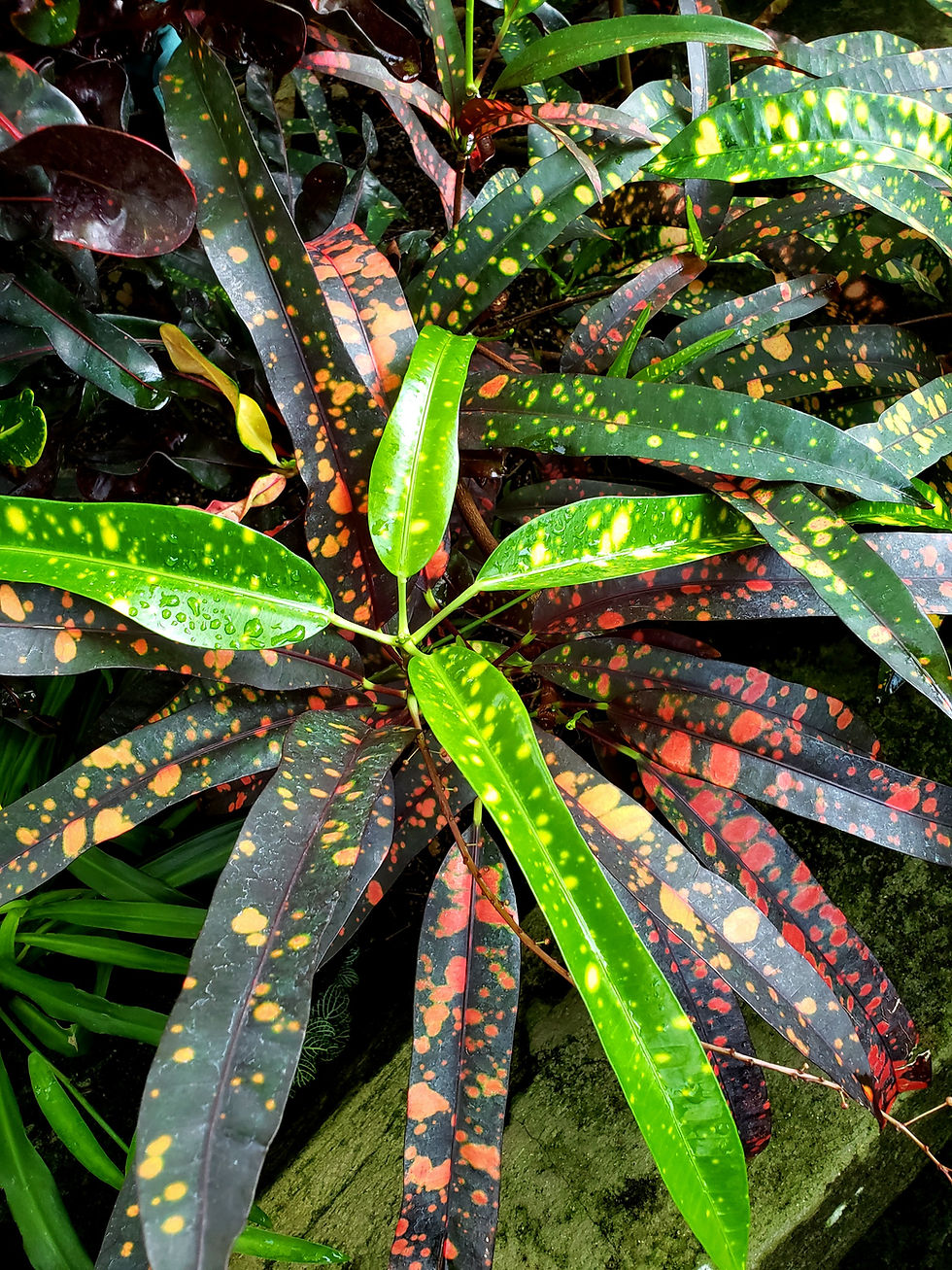
Giving extra humidity to these plants is a MUST. Out of all the plants I've covered so far, this is one where humidity should be considered a requirement. You can increase humidity by...
Placing a humidifier near by.
Misting it with a spray bottle.
Placing a tray of water and pebbles below the plant (you can use a larger saucer for this).
Put your plant in the shower! Make sure the water beating down on the leaves isn't damaging them first! Putting them in the shower can definitely help increase humidity, help water your Croton thoroughly, and even help prevent pests.
Placing you plant in a mini Ikea greenhouse or green house cabinet (there are more sizes and color besides the like I provided).
Overall, misting will not provide as much humidity as an actual humidifier or even a tray of water filled with pebbles underneath. But it still helps (and help prevent spider mites)!
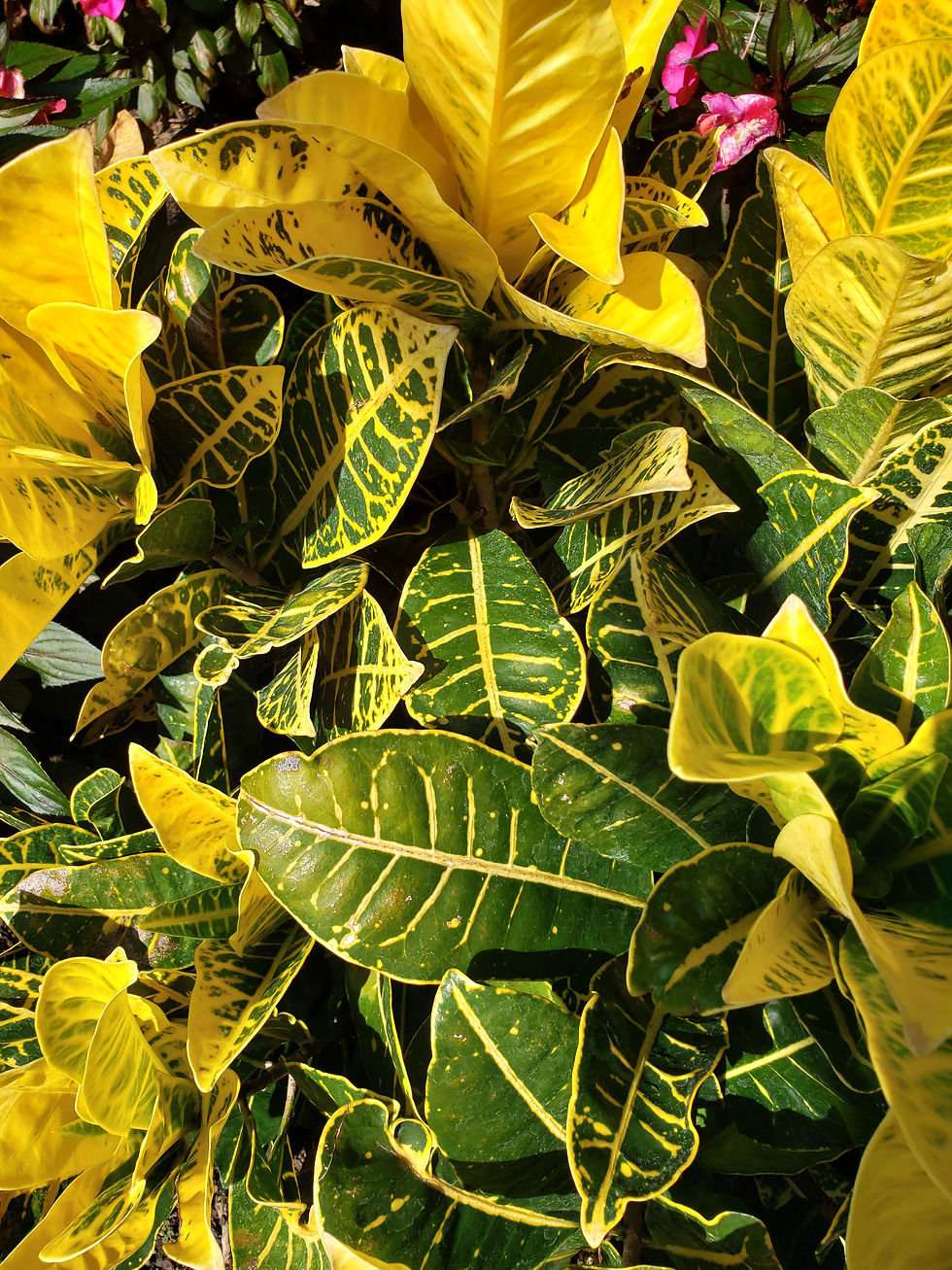
Fertilizer
As I always say, there are LOTS of way to fertilize plants. Unless you are extremely over fertilizing your plant, there isn't necessarily a wrong way to do this. I currently use Espoma Indoor! Liquid Plant Food and I fertilize every 2 weeks when I water my plants, starting around the end of February through October. I honestly probably only fertilize once or twice in winter because the plant isn't as active! I use about 1/2 to 3/4 the recommended amount of fertilizer because I would rather under fertilize than over fertilize my plants.
Here are what other sources said...
The Complete Houseplant Survival Manual says, "in spring and summer, feed every 2 weeks with a balanced houseplant food. In fall and winter, feed monthly."
Practical Houseplant Book says, "apply a balanced liquid fertilizer every 2 weeks from spring to fall"
Fertilizing is completely up to you! There are MANY products out there you can try but an overall rule of thumb for houseplants is that it is best to under fertilize rather than over fertilize. Always use the recommended amount, or less, when applying your fertilizer to houseplants.
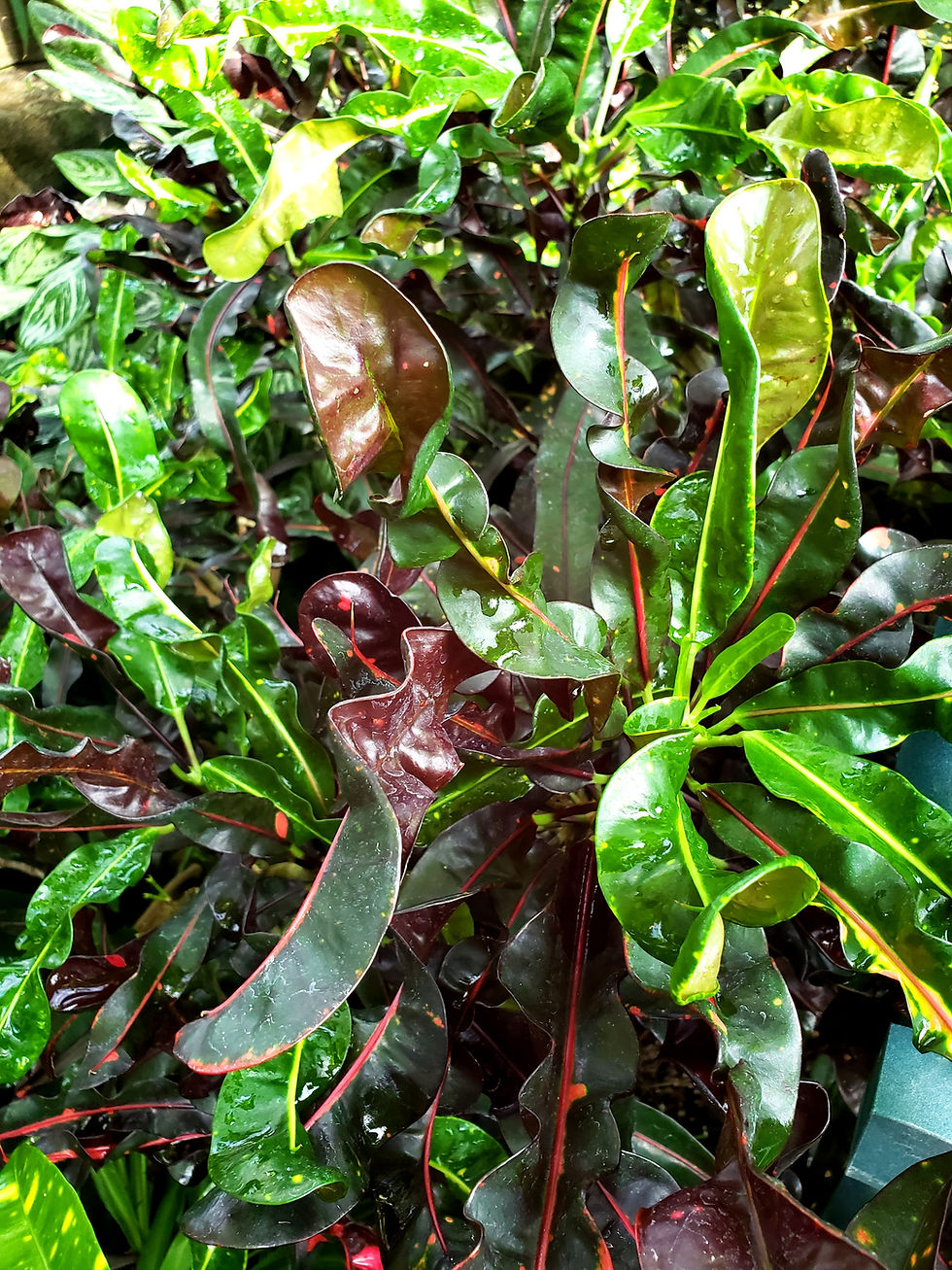
Propagation
The main way to propagate Crotons is stem cuttings. All you have to do is cut the stem just below a leaf node. Make sure you have at least 4-6" of the stem for propagating. Leave at least one or two leaves at the top of the stem. Pull off any leaves at the leaf nodes you may be putting in water or soil.
In about a month you will start to see roots forming!
Other Facts
Part of the Euphorbiaceae Family (Spurge Family).
Poinsettias, Crown of Thornes and the Copperleaf Plant are also in this family
Native habitat of tropical Asia and Western Pacific Region in hardiness zones 11-12
When grown in its native habit, these are grown as shrubs that can grow up to 10 feet tall
In your house, these can grow up to 5 feet tall and about 2-3 feet wide, depending on the environment
Keep away from drafty windows and doors in colder months. These HATE the cold so make sure to keep them in temperatures over 60 degrees F at all times.
These do flower but it rarely happens as a houseplant. They are tiny yellow flower that aren't considered very showy.
Toxic to pets and humans. Check out Podcast Ep#31 for more info or the corresponding Blog post!
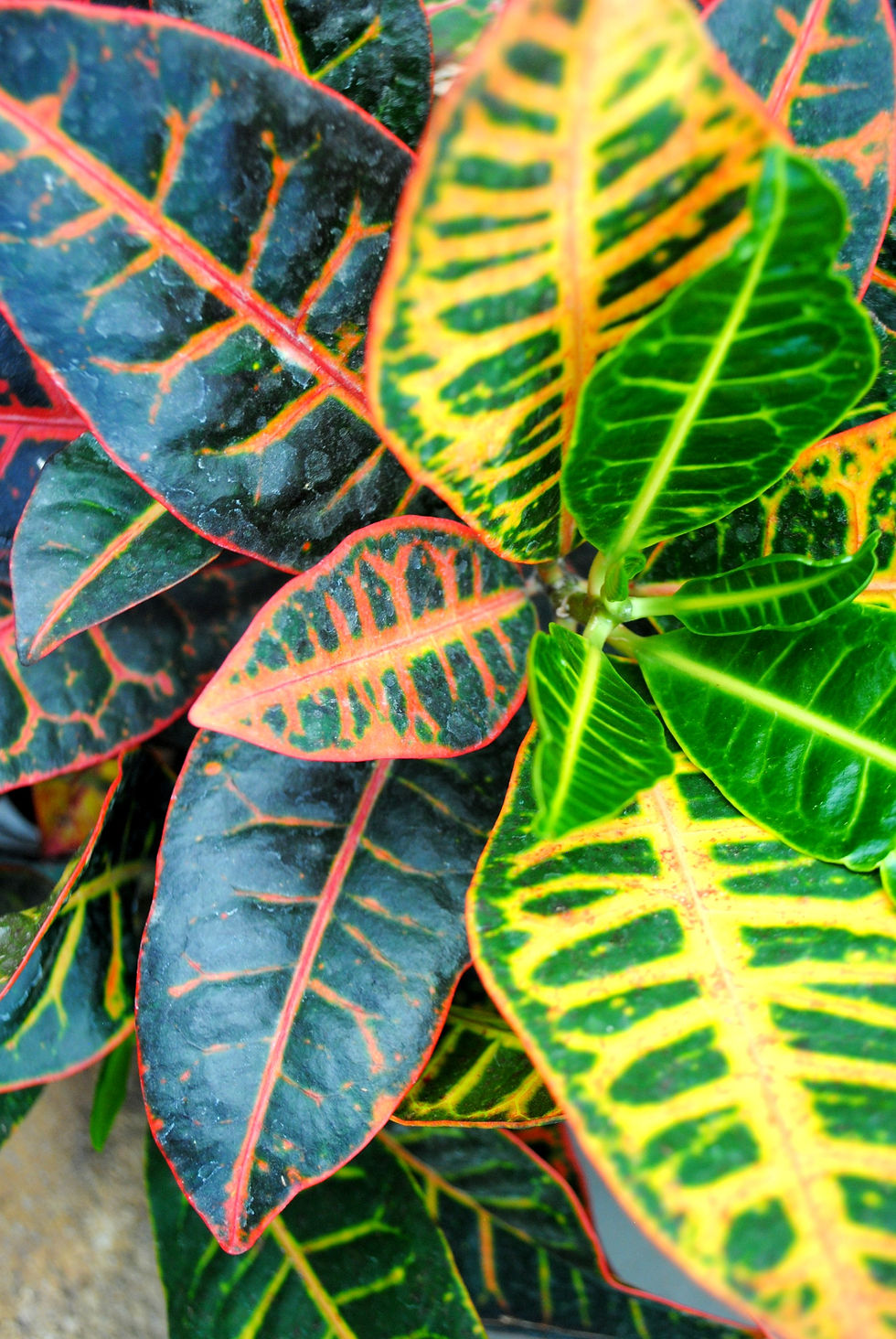
Instagram Q&A
I asked followers if they had any specific plant questions I could address in this podcast and blog. Here are the questions and answers for Crotons...
"I see some people categorize these as difficult to take care of. Would you agree?"
Overall it is a higher maintenance plant which would typically categorize it as a difficult plant. If you are able to give it the attention it needs with proper humidity, light and water, you should have a successful relationship with your Croton!
"How challenging are they and how much light? I love them so much and its the plant I'm dying to have!"
They are considered challenging simply because of the requirements they need. Not everyone can provide all of that for just one plant.
Lighting should be bright, indirect and direct light is possible
If you are able to provide everything they need than I would definitely try it! You always have this episode/blog to reference in the future!
"Question maybe you don't address a lot is cost comparison, but what should you pay for a Croton?"
Before I answer this, keep in mind, I am a cheap plant parent!
I usually wouldn't pay over $15 for a 4", $25 for a 6" or $4o for a 10"
You HAVE to remember, shopping small and supporting local almost always means paying a slightly higher cost than big box store.
#croton #codiaeumvariegatum #petracroton #mammycroton #highmaintenance #propagation #crazyplantlady #ihaveathingwithplants #plantcommunity #urbanjungle #funfacts #podcast #houseplanthomebody #blog #helloplantlady #plantparenthood #fortheloveofplants #plantaddict #plantgang #plantsarefriends #thatplantlife #houseplantlove #tellyourplantfriend #houseplantblog #houseplantpodcast #plantssparkjoy #plantsmakepeoplehappy
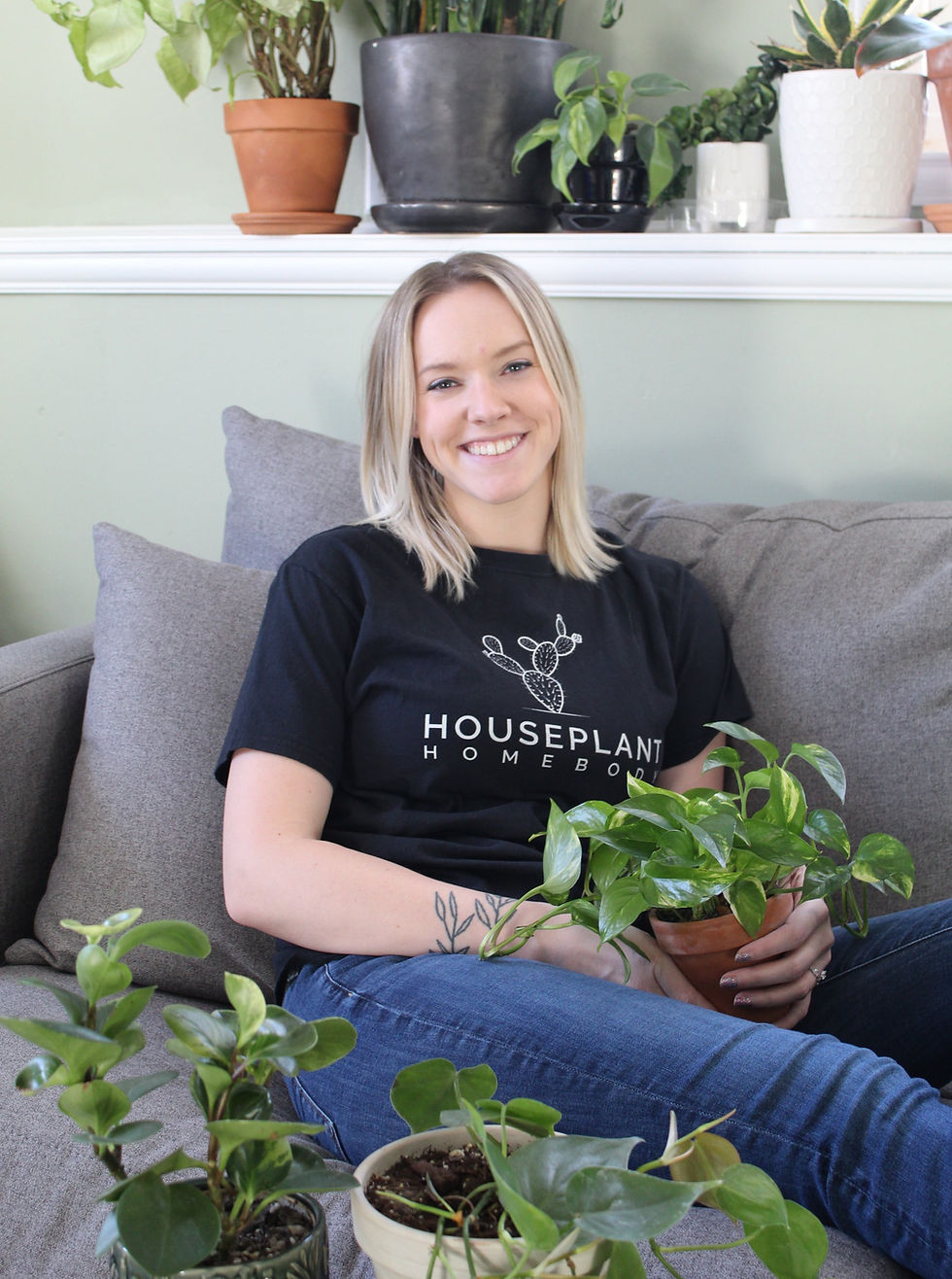
WANT TO LISTEN?
Go to Apple Podcasts, Amazon, Spotify, Stitcher, Google Podcasts, and PodBean. Search for Houseplant Homebody to hear this episode and MANY more! You can also listen directly on my website under the Podcast page!
DON'T FORGET TO FOLLOW!
Stay connected on Instagram, Facebook, and Pinterest @houseplanthomebodyllc.
SAVE, COMMENT, LIKE, FOLLOW, SUBSCRIBE, and SHARE.
All your engagement on my podcasts, blogs, and social media posts help other plant lovers find me too!

Always written with extreme plant passion!
Love, Holly





Comments